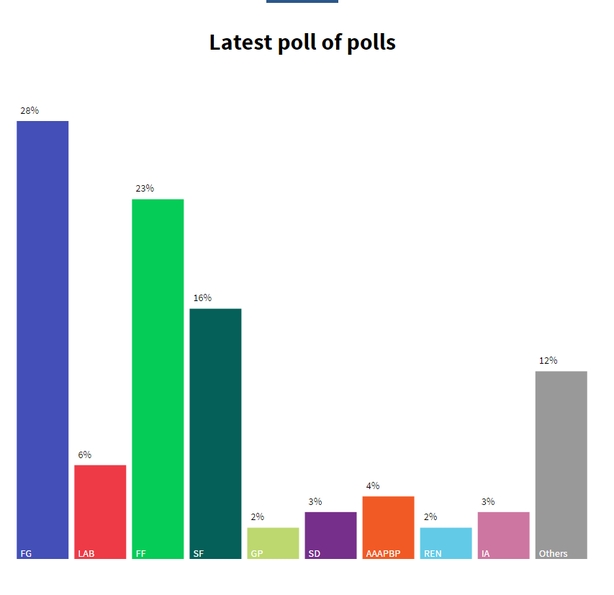In an apparent moment of wisdom recently, somebody muttered to me: "There are two things you should never do in life: take heroin, or vote for Sinn Fein."
 |
| Sinn Fein TDs: Pearse Doherty, Gerry Adams, Mary-Lou McDonald, Martin McGuinness. Source: theJournal.ie |
I thought this was interesting, and behind this stark statement I have heard many people discreetly share the same viewpoint in the run up to the general election. And I wanted to find out exactly why...
My granny has always been had a keen interest in politics, but has never had a soft spot for Sinn Fein. Many a time I have been treated to her using an array of colourful adjectives to describe the party's leader, Gerry Adams. I was always intrigued by this. Yes, my granny is a big Fine Gael supporter, but she doesn't seem to have the same level of hatred for Fine Fail or Labour that she begrudges Sinn Fein...
Eager to get to the bottom of this intrinsic loathing of Sinn Fein, I asked my mother. She summarised: "Gavin - I grew up during the Troubles. In my era, every day there was a newspaper headline or a news report telling of the latest victim of the ongoing Republican-Unionist feud." She referenced the alliances and links between the IRA and Sinn Fein which have been touted by the media throughout the years. I'm not going to try to validate or disprove any of those allegations. But, what I will say, is that a whole section of society is anti-Sinn Fein as a result. There is a large percentage of the population who will simply never vote Sinn Fein.
I'm only 17 years-old, and I have been intrigued by the growing support for the party in the recent past. John Brady, the candidate in my constituency (Wicklow), is sure to get elected this week. Meanwhile, poles are suggesting that Sinn Fein holds 16% of the national vote. They seem to have cashed-in on a pronounced nationalistic spirit among those from poorer socio-economic backgrounds and capitalised on it by targeting their policies at those in society with the least money. So-called 'auction politics' has become a very obvious tactic by a number of parties in this general election.
Regardless of the party's policies, my parents are adamant that they will never vote Sinn Fein. Not because they feel the local candidate isn't experienced enough, not necessarily because they completely reject all of the party's agenda, but because of the party's origins and the history associated with it. Some might regard this as illogical and unforgiving, but frankly, in a democracy, each citizen has the right to vote for who and what they want.
For me and my peers, the troubles did not directly affect us in our lifetime. I don't think that we'll automatically disregard Sinn Fein because of the history linked to the party. That history is pontificated so frequently in the media even today, but we didn't live through it. It isn't so real to us.
I need to point out that there is a stigma attached to voting for Sinn Fein - A 'Shinner' is assumed to be either a die-hard republican, or someone from a lesser socio-economic background (who follows them based on their agenda which calls for more provisions for those least well-off in society). And I'm not suggesting that this is a fair assumption, and of course I'm not suggesting that there is anything wrong with a person who votes Sinn Fein. I'm interested to see if the branding of Sinn Fein voters in this manner will become out-dated in the years to come.
Party leaders and prominent members will move on. The past will be forgiven, but maybe never quite forgotten. Will Sinn Fein see a new era? Maybe that era is today... Friday will be the judge of that.

Comments
Post a Comment